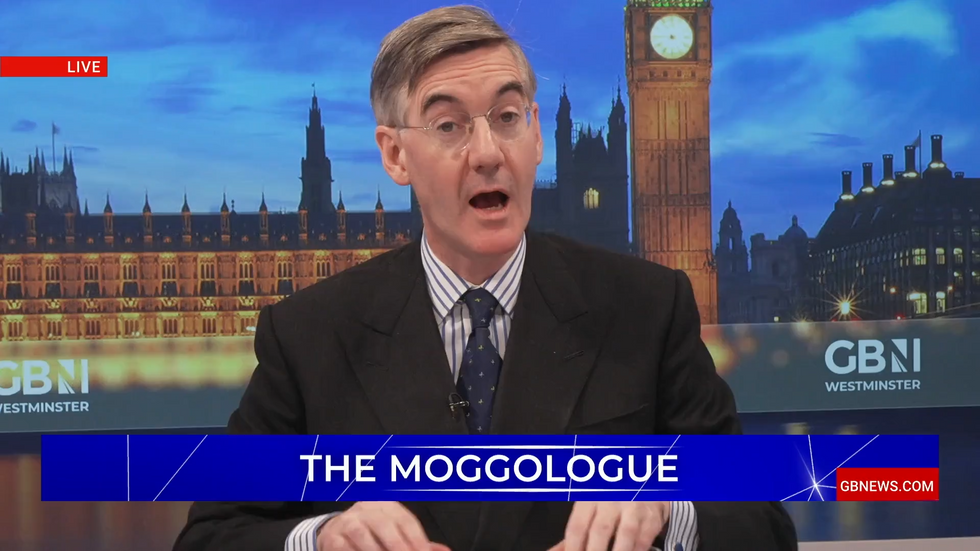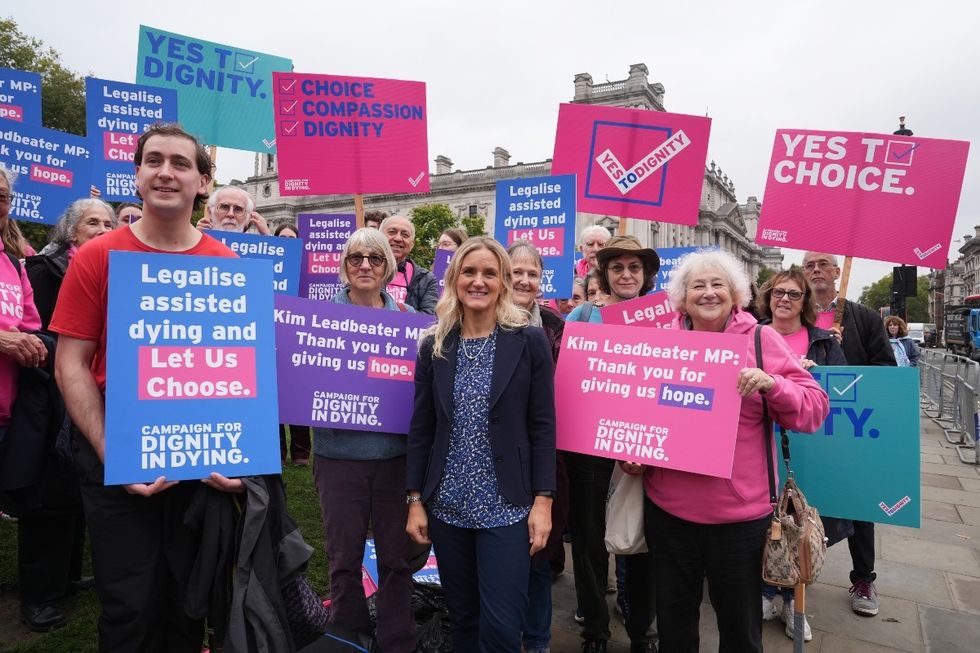GB News Reporter
Guest Reporter
I want to take the opportunity to make the case against the assisted dying bill.
The last time there was a vote in the House of Commons in 2015 it was defeated by 330 votes to 118. I opposed it then, and I oppose it now.
As a Catholic, the sanctity of life is paramount. It is not for man to bring life to an end. But the secular arguments are equally as strong as the religious ones.
This bill fundamentally changes the relationship between the patient and the National Health Service. The service has always been there to save people's lives, but the introduction of assisted suicide would take the sinister notion from the COVID days to ‘stay at home to protect the NHS’, to an even more sinister level of ‘kill yourself to protect the NHS’.

It is notable that the health secretary Wes Streeting is against it, warning the bill could lead to coercion, citing the fact that palliative care facilities are under-resourced as part of his reasoning.
The worst pressure, the one that is impossible to stop, is the selfless, self-imposed one of the old who feel they are using up resources.

People have grown up cautious of being a burden on their families or on the NHS, who have a desire to let the young lead their lives with an early inheritance under the current law, the old know that they do not have the option of state sanctioned suicide.
Under the new law it would inevitably be a consideration and something that they may feel of their own volition, not with anybody saying this to them, something that they would have to do to free their family from a burden.
And that seems to me to be the worst risk that we are taking.
There's also the thought that whilst it's rare, terminally ill people sometimes survive and recover. We've covered cases in which doctors tell patients they will not survive before they go on to do exactly that.
And however rare such cases may be, even if it's one in 1,000, that is one case in 1,000 in which a life could be saved and a longer life lived.
If euthanasia remains illegal, it does not mean that pain relief that hastens death isn't allowed. Indeed, this happens now, and incidentally, aligns with Catholic doctrine.
But we really ought to look at the countries that have legalised euthanasia so far, oiling the slippery slope.
In Belgium, even children have had state sponsored suicide. In Canada, we have seen people's lives ended for reasons, partly owing to poverty or low living standards. In the Netherlands, we have seen people take their lives owing to mental health problems.
This along with the self-imposed pressure to take one's life must never be allowed to happen in the United Kingdom. But Friday's bill begins to pave the way for it.
Find Out More...
The last time there was a vote in the House of Commons in 2015 it was defeated by 330 votes to 118. I opposed it then, and I oppose it now.
As a Catholic, the sanctity of life is paramount. It is not for man to bring life to an end. But the secular arguments are equally as strong as the religious ones.
This bill fundamentally changes the relationship between the patient and the National Health Service. The service has always been there to save people's lives, but the introduction of assisted suicide would take the sinister notion from the COVID days to ‘stay at home to protect the NHS’, to an even more sinister level of ‘kill yourself to protect the NHS’.

It is notable that the health secretary Wes Streeting is against it, warning the bill could lead to coercion, citing the fact that palliative care facilities are under-resourced as part of his reasoning.
The worst pressure, the one that is impossible to stop, is the selfless, self-imposed one of the old who feel they are using up resources.

People have grown up cautious of being a burden on their families or on the NHS, who have a desire to let the young lead their lives with an early inheritance under the current law, the old know that they do not have the option of state sanctioned suicide.
Under the new law it would inevitably be a consideration and something that they may feel of their own volition, not with anybody saying this to them, something that they would have to do to free their family from a burden.
And that seems to me to be the worst risk that we are taking.
There's also the thought that whilst it's rare, terminally ill people sometimes survive and recover. We've covered cases in which doctors tell patients they will not survive before they go on to do exactly that.
And however rare such cases may be, even if it's one in 1,000, that is one case in 1,000 in which a life could be saved and a longer life lived.
If euthanasia remains illegal, it does not mean that pain relief that hastens death isn't allowed. Indeed, this happens now, and incidentally, aligns with Catholic doctrine.
But we really ought to look at the countries that have legalised euthanasia so far, oiling the slippery slope.
In Belgium, even children have had state sponsored suicide. In Canada, we have seen people's lives ended for reasons, partly owing to poverty or low living standards. In the Netherlands, we have seen people take their lives owing to mental health problems.
This along with the self-imposed pressure to take one's life must never be allowed to happen in the United Kingdom. But Friday's bill begins to pave the way for it.
Find Out More...